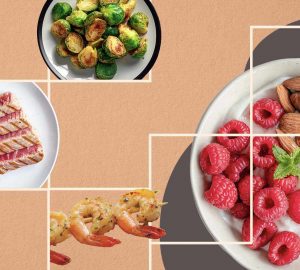There is an overwhelming array of diet supplements available on the market today, and so much of the nutritional advice about them seems contradictory.
Not only are these supplements expensive, but the benefits of them are often unclear and they could in fact be doing you more harm than good.
It is not uncommon for people to find themselves taking a dizzying concoction of fish oil tablets, multivitamins, protein shakes and energy supplements without ever really stopping to ask why, or examining the impact they are having. And this is without even considering prescription medications.
The solution to this is simple; subtraction.
By removing the non-essentials from your diet, you can get a far clearer picture of the impact these supplements have, if any.
Detox
People talk about detox as something that they do once in a while, ridding their bodies of all the negative toxins that they have built up over time. This is usually referring to things like alcohol or sugary foods.
But actually it can apply more generally to your diet, and you can take it a step further by making more permanent changes.
Some key things that you might want to think about removing include:
- Caffeine
- Fish oil supplements
- Multivitamins
- Protein shakes
- Refined sugar
Taking these things out of your diet forces you to focus on addressing the real issues, rather than using supplements as a quick fix. It may also reveal that these things were having no real impact.
For example, is your need for caffeine and refined sugar in the morning really driven by the fact that you are not sleeping well? Does your daily protein shake do anything for your recovery or muscle definition that a chicken breast wouldn’t?
Removing these things also removes the ambiguity from your diet. Taking fish oil supplements may or may not help you, but eating salmon fillets definitely tastes great AND comes with all the health benefits.
Tailor the approach
The key here is really to experiment and see what works for you.
Start by cutting things out and monitoring how it makes you feel, then gradually add things back in if necessary. I initially removed coffee from my diet, but found that I missed the ceremony of it, so I instead limit to one cup per day.
If you find that you don’t notice any difference when you stop taking your multivitamin, ask yourself if you ever really needed it in the first place.
Broader implications
Many things in our diet are relatively new and the long-term effects are not truly known. In the history of mankind we’ve only been taking protein shakes for a fraction of our existence, and we seem to have done fine so far.
If you want to make positive changes to your lifestyle, focus on getting the important things right; a good night’s sleep, sufficient exercise, and consuming a healthy balanced diet.
Unless you have specific medical conditions, you should be able to get all the things you need from a natural diet, so save yourself the money and leave the supplements on the shelf.
If you have success with the subtraction method you may want to think about where else in your life you can apply it, as the implications extend far beyond the food you consume. Two other examples include:
- Low information diet – Cut back on the amount of TV you watch and the news media you consume, free up time and space in your head to focus on the things that are really important.
- Digital Detox – Put down the phone and step away from the computer. Focus on making real connections with the people around you and be really present in the moment.
Next time you think about making changes to your lifestyle, think first about what you can take out, not what else to put in.
 As founder and editor of 500 Calorie Fitness, Rob helps people find simple and sustainable ways to lose weight and keep it off. This starts right at your motivation and mindset, and carries through to your diet, nutrition and exercise.
As founder and editor of 500 Calorie Fitness, Rob helps people find simple and sustainable ways to lose weight and keep it off. This starts right at your motivation and mindset, and carries through to your diet, nutrition and exercise.








